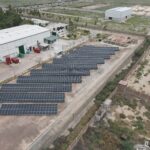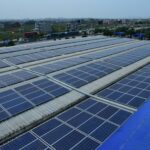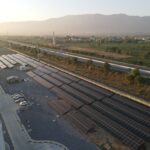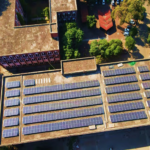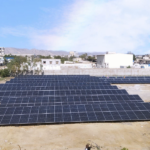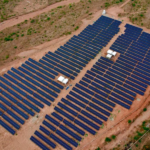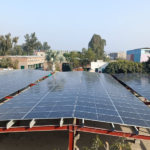With environmental issues, rising electricity prices, and energy shortages in Pakistan, solar energy provides a sustainable answer to the urgent energy issues facing the country because of its plentiful sunshine and other benefits associated with it.
Harnessing Abundant Solar Potential
Pakistan is fortunate to get high levels of solar radiation, with an average of 5.5 to 6 kWh per square meter each day. This natural advantage puts the country in a good position to utilize solar power to its full potential, particularly in the provinces of Sindh, Punjab, and Balochistan. One example of this potential is the Quaid-e-Azam Solar Park in Bahawalpur, which produces a significant amount for the national grid.
Addressing the Energy Crisis
Pakistan has been faced with persistent power outages and an increasing gap between demand and supply for energy. With their overdependence on imported fossil fuels, the conventional power generation methods cannot match the increased demand, leading to prolonged load shedding and reducing industrial output. Particularly in remote and rural locations, sunlight energy represents a secure and decentralized option that helps minimize reliance upon the national grid and provides a continuous supply of electricity.

Economic Advantages and Cost Savings
There are various economic benefits of transitioning to solar energy. With the global decline in solar panel prices, the initial investment in solar installations has become more accessible. Moreover, net metering policies allow businesses to sell excess electricity back to the grid, turning their premises into energy producers and reducing electricity bills. Over time, the savings from reduced energy costs can outweigh the initial installation expenses, offering long-term financial relief.
Environmental and Health Benefits
Solar power, when in operation, produces no greenhouse gases and is hence a clean and renewable source of power. With reduction in the consumption of fossil fuels, Pakistan can effectively reduce its carbon footprint and play its part in the international efforts of slowing climate change. Additionally, better public health outcomes, such as a decrease in cardiovascular and respiratory disorders, might arise from improved air quality brought on by less pollution.
Job Creation and Economic Growth
There are ample opportunities for career development in the solar energy industry in different sectors such as manufacturing, installation, maintenance, and research & development. The need for trained professionals is increasing with the need for solar solutions, creating job opportunities and triggering economic development.

Government Initiatives and Policy Support
The government of Pakistan has taken a series of measures to encourage the usage of solar energy since it understands the importance of renewable energy. They include advantageous net metering policies, tax exemption on solar equipment, as well as subsidies for solar solutions utilized in agriculture. These efforts seek to promote large-scale utilization of solar energy by making it accessible to the general public.
Enhancing Energy Security
As it is mostly reliant on imported fossil fuels, Pakistan is subject to global market fluctuations and supply disruptions. With investment in solar power, the nation can de-risk its energy dependence on outside sources, raising national energy security and providing a consistent source of electricity for the population.
Conclusion
For Pakistan, a shift to solar power is not only a necessity for the environment but also for society and the economy of the nation. The country can end its energy crisis, enhance economic growth, and lead towards a bright and sustainable future by embracing solar power. In order to use the sun’s power to illuminate Pakistan’s future, it is essential that policymakers, citizens, and entrepreneurs join hands and invest in solar choices as we progress towards 2025.
Visit Shams Power to learn more about solar energy options and how you can contribute to Pakistan’s solar revolution.



